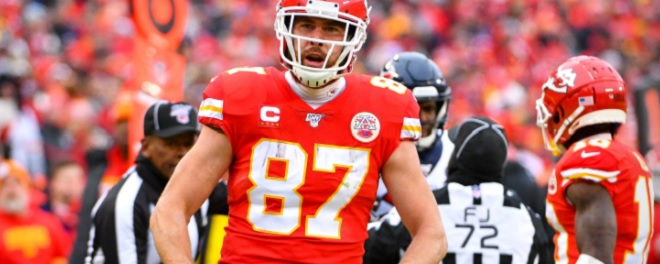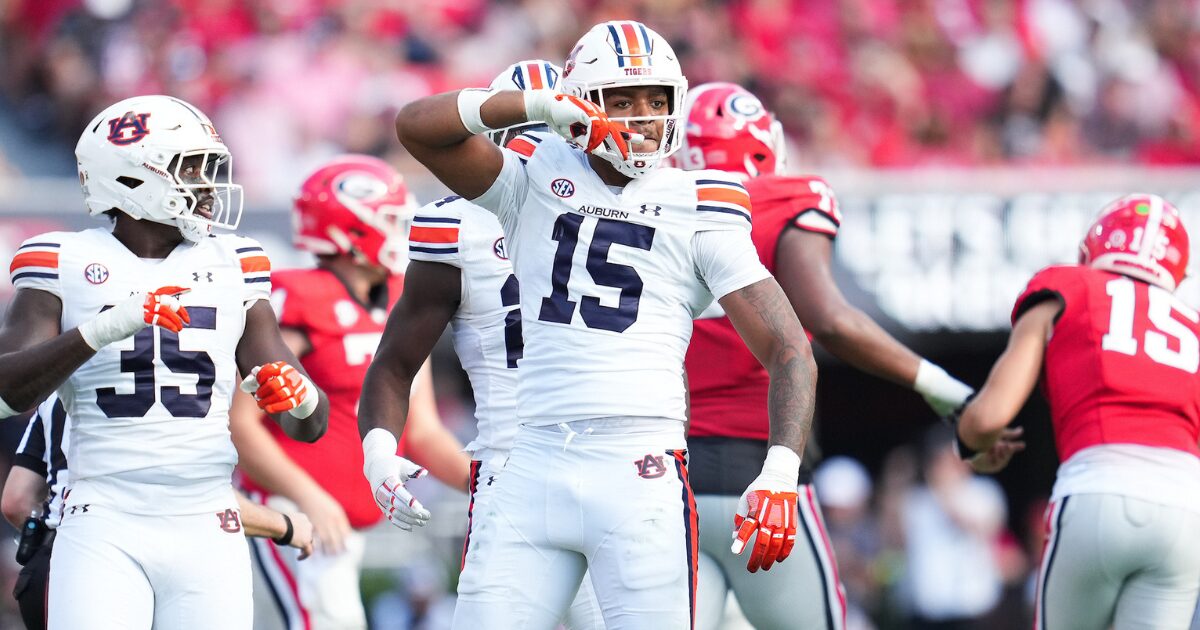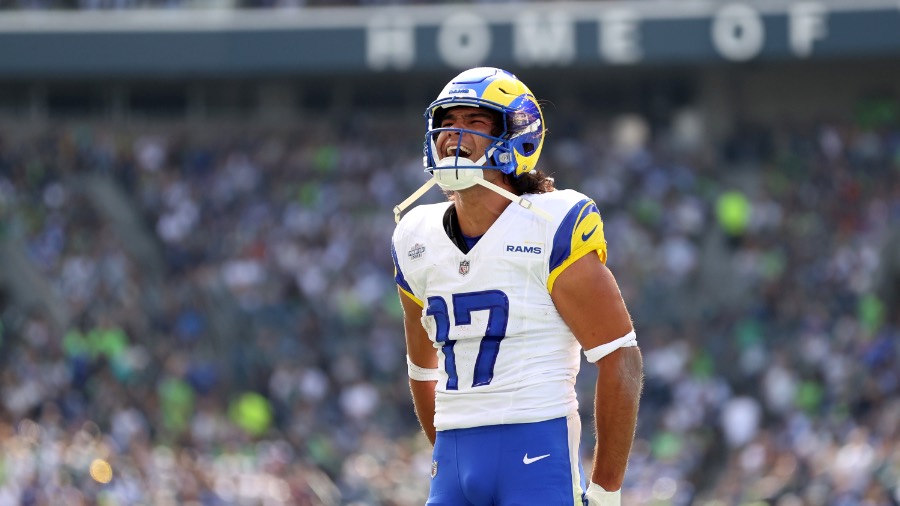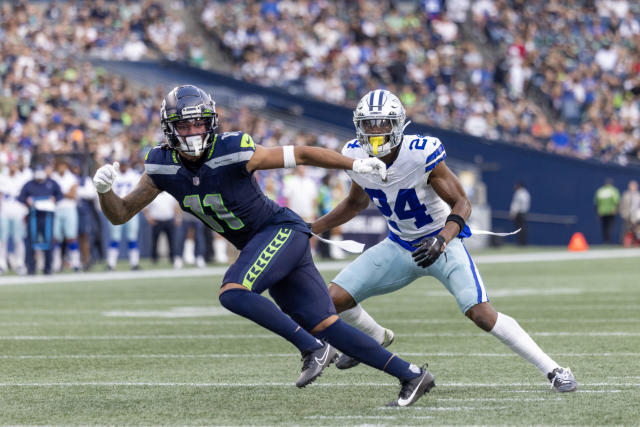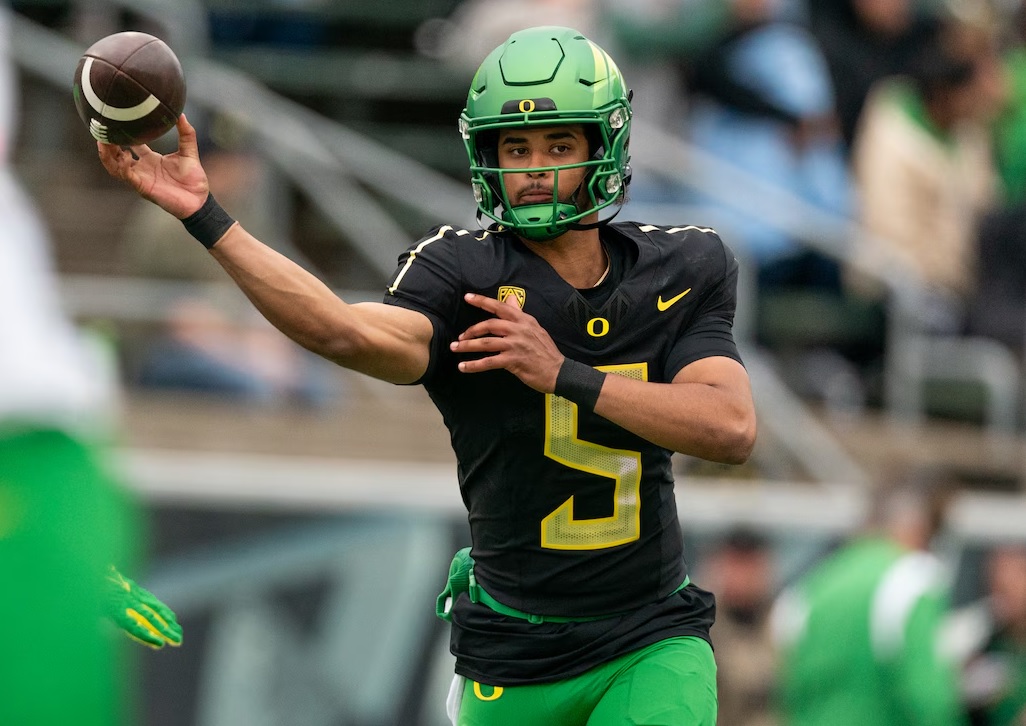NFL Game Recaps of previous weeks and seasons can be found via links at the bottom of the page.

 Chiefs 19, Broncos 8
This was an incredibly sloppy game. Both teams committed turnovers in the first half, while the Chiefs failed to seize control because of some goofy play-calls. Russell Wilson tossed an early interception because he didn’t see Nick Bolton, while Patrick Mahomes was picked at the goal line when he carelessly threw the ball up for grabs.
Chiefs 19, Broncos 8
This was an incredibly sloppy game. Both teams committed turnovers in the first half, while the Chiefs failed to seize control because of some goofy play-calls. Russell Wilson tossed an early interception because he didn’t see Nick Bolton, while Patrick Mahomes was picked at the goal line when he carelessly threw the ball up for grabs.
The Chiefs repeatedly stalled in Denver territory, settling for a bunch of field goals. It seemed like it was 16-0 forever until the Broncos were granted a free set of downs deep in Kansas City territory because of a bogus roughing-the-passer penalty. Wilson finally got on the board by hitting Courtland Sutton for a touchdown on the next play to trim the margin to within eight.
For the first time since the opening quarter, the game was in doubt for the Chiefs. Mahomes, however, hit Rashee Rice for a 28-yard pass on a third-and-2 to move into field goal range. Harrison Butker drilled a 52-yard field goal to give the Chiefs an 11-point lead with two minutes remaining, putting the game out of reach for Denver.
Mahomes had a sloppy start to this game, but finished the night with a 75-percent completion rate and 300-plus passing yards. He went 30-of-40 for 306 yards, one touchdown and the pick. He also scrambled six times for 31 rushing yards.
Mahomes didn’t waste any time delivering passes to Travis Kelce, who reached 100 receiving yards by halftime. He hauled in all nine of his targets for 124 yards. He limped off the field late in the game, but it didn’t look overly serious. The only other Chief with more than 36 receiving yards was Rashee Rice, who snatched all four passes thrown to him for 72 yards.
Isiah Pacheco ran well, but didn’t do so enough. He rushed for 62 yards on 16 carries. He did a lot in the passing game, reeling in all six targets for 36 receiving yards.
As for the Broncos, the bleak stats match the underwhelming play. Kansas City’s front dominated, making it impossible for Denver to move the ball. The Broncos failed to accumulate 200 net yards.
Wilson didn’t have much of a chance in the pocket, taking four sacks. He ended up 13-of-22 for only 95 yards, one touchdown and two interceptions, with the second pick coming off a deflection. He scrambled four times for 31 rushing yards, but all of those runs came when it was too late. Wilson needs to consider running more earlier in games.
Sutton was Denver’s leading receiver with four grabs for 46 yards and the near-covering touchdown. He was the only Bronco with more than 16 receiving yards. Jerry Jeudy (3-14) will likely be traded soon.
Javonte Williams looked good in his return from injury. He rushed for 52 yards on 10 carries. Denver would love to lift the restrictions of Williams just as the Jets did with Breece Hall, but that doesn’t seem to be wise.

 Ravens 24, Titans 16
The Ravens prevailed in this game to improve to 4-2, but they must re-think their offensive strategy when they venture into the red zone. Baltimore moved the ball with ease in this contest, but repeatedly stalled deep in Tennessee territory. Justin Tucker drilled six field goals, though an extra point of his was blocked.
Ravens 24, Titans 16
The Ravens prevailed in this game to improve to 4-2, but they must re-think their offensive strategy when they venture into the red zone. Baltimore moved the ball with ease in this contest, but repeatedly stalled deep in Tennessee territory. Justin Tucker drilled six field goals, though an extra point of his was blocked.
While defenses can take credit for performing well while backed up on their own goal line, this was not the case in this game. The Ravens were completely responsible for their own futility. Despite having so much success aerially in between the 20s, the Ravens would almost always turn to the ground game in the red zone, which didn’t make any sense, especially in this matchup. The Titans excel versus the rush, but can’t stop the pass, so why did Baltimore run so much in crucial situations? The one time the Ravens didn’t go into this running shell, they scored their lone touchdown when Lamar Jackson hit Zay Flowers in the end zone. Despite this, the Ravens continued to be overly conservative in the red zone. Had they battled a competent offense, they would have lost.
And it wasn’t like Jackson wasn’t playing well either. Jackson made just a couple of mistakes in this game. He fired an interception on an overthrow and missed a wide-open Odell Beckham Jr., but was otherwise excellent. He went 21-of-30 for 223 yards, one touchdown and the pick. He also scrambled 13 times for 62 rushing yards.
The stats can tell you how ineffective the Baltimore ground attack was. Jackson led the team in rushing, outpacing Gus Edwards (16-41) and Justice Hill (8-35). The two backs failed to convert multiple third-and-short situations.
Flowers ended up with six catches for 50 yards and a touchdown. He trailed only Mark Andrews, who had four receptions for 69 yards.
As for the Titans, Ryan Tannehill was knocked out of the game with some sort of ankle injury in the fourth quarter. Malik Willis took over and led the Titans into the red zone, thanks to a 48-yard Tyjae Spears reception, but stalled near the goal line. Unlike the Ravens, the Titans didn’t bother running deep in Baltimore territory. Someone needs to tell these teams what their strengths are, apparently.
Willis was 4-of-5 for 74 yards, but took some bad sacks. He supplanted the miserable Tannehill, who was just 8-of-16 for 76 yards and an interception where he stared down his receiver.
The Titans didn’t run the ball enough with Derrick Henry, who rumbled for 97 yards and a touchdown on just 12 carries. He broke free for a 63-yard gain on Tennessee’s sole touchdown drive.
Spears led the Titans in receiving even though his 48-yard reception was his only catch. Nick Westbrook (3-25) was next. DeAndre Hopkins (1-20) was a huge disappointment, though he drew two interference flags, one of which was a bad call.

 Vikings 19, Bears 13
Both the Vikings and Bears struggled mightily on defense throughout the season, so many expected some offensive fireworks in this game. Inexplicably, the two teams engaged in a defensive slugfest. Neither team logged more than 200 net yards until the third quarter, and both squads combined for 5-of-15 third-down conversions in the opening half. The two quarterbacks each were responsible for interceptions that occurred as they were being hit.
Vikings 19, Bears 13
Both the Vikings and Bears struggled mightily on defense throughout the season, so many expected some offensive fireworks in this game. Inexplicably, the two teams engaged in a defensive slugfest. Neither team logged more than 200 net yards until the third quarter, and both squads combined for 5-of-15 third-down conversions in the opening half. The two quarterbacks each were responsible for interceptions that occurred as they were being hit.
Speaking of hits, Fields took a crushing one while trying to escape pressure in the third quarter. He was knocked out with a wrist injury, forcing someone named Tyson Bagent into the game as a replacement. It was quickly apparent that Bagent was not ready for regular-season action because he lost a fumble on a strip-sack on his very first snap. Jordan Hicks scooped and scored, giving the Vikings a 19-6 lead in a game that didn’t have a margin of more than six points for either team prior to that play.
The Bears actually had a chance to win the game in the final minutes. Bagent, who had completed most of his passes after the fumble (10-of-14, 83 yards), lobbed a horribly underthrown pass, which was intercepted.
It’s unclear how long Fields will miss with his wrist injury, but perhaps it’s for the best. The Bears can now concentrate on obtaining the top two picks of the 2024 NFL Draft, which will give them Caleb Williams and a haul for many other draft choices from a team wanting to trade up for Drake Maye. Fields went 6-of-10 for 58 yards and an interception. He scrambled eight times for 46 rushing yards.
Kirk Cousins didn’t do too much better than Fields, going 21-of-31 for 181 yards and a touchdown. His “interception” was credited as a lost fumble, but it was still a similar turnover to the one Fields suffered. It was clear that Cousins was not the same quarterback as we’ve seen when he has Justin Jefferson at his disposal.
With Jefferson missing, no Viking logged more than 50 receiving yards. T.J. Hockenson led the way with six grabs for 50 yards, while Jordan Addison caught three passes for 28 yards and a touchdown. He was guilty of a drop. K.J. Osborn snatched four passes for 48 yards. He recorded those stats in the opening half with some big catches in the second quarter, but couldn’t do anything following intermission.
Alexander Mattison couldn’t get anything going either. He managed only 44 yards on 18 carries. He at least caught four passes for 28 receiving yards.
The Bears had two players who outgained Mattison on the ground, with Fields being one of them. The other was D’Onta Foreman, who rumbled for 65 yards on 15 carries. He split touches with Darrynton Evans (9-32) in the first half before taking over after intermission.
It was no surprise that D.J. Moore paced Chicago in receiving. He caught five passes for 51 yards. Darnell Mooney (2-48) was the only other Bear with more than 12 receiving yards.





